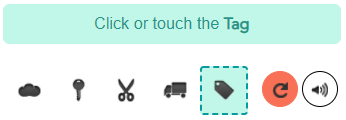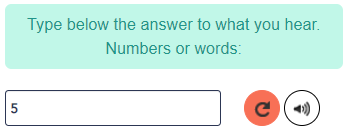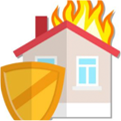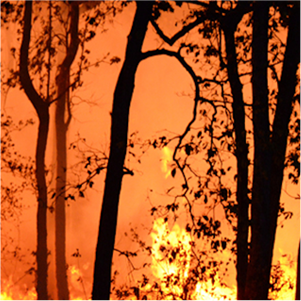Homeowners Insurance Basics
When you rent a property to a tenant, it doesn't matter if it's a house, apartment, or condo, you need to protect your investment the same way you would in your own home. Because rental properties are occupied by tenants who do not have a financial stake in where they live, these properties are generally more vulnerable to damage and disrepair than owner-occupied and -owned homes. In the eyes of insurance companies, this makes rental properties more risky to insure and, therefore, more expensive than a homeowners insurance policy.


Rental property insurance, also known as homeowners insurance or homeowners insurance, is intended to protect rental properties that contain between one and four non-owner-occupied rental units. Rental property insurance protects owners from potential financial losses caused by property damage and liability.
Long-term rental insurance
If you have a long-term tenant who lives on your rental property (for a period of six months or more), you will need insurance for the owner or rental home. This will protect you from possible financial loss due to damage or destruction to your rental property. If the property is affected by a covered loss such as a fire, homeowners insurance must cover the cost of repairs.
Insurance for Short-Term Rentals
Depending on the length of occupancy of your rental property, there is an important distinction to make when purchasing insurance coverage.
Frequent Tenants
If your rental property is occupied by short-term tenants who come and go, your property would be considered a place of commercial use by insurers. If you find short-term tenants through a shared housing service like Airbnb, which offers its own insurance, it might be a good idea to get additional
Table of contents

Table of contents

Uncommon Tenants
The case could be less complicated if you only rent your property occasionally or if it is a one-time short-term rental. Your existing homeowner's policy may suffice, but you should confirm with your insurance company to avoid surprises. If you're not covered, consider adding an endorsement, specifically a rental addendum, to your policy to make sure it's protected when you need to rent your home.
coverage in the form of a commercial property insurance policy, one that specifically covers shared housing and rentals. vacation. protecting owners and owners. Although Airbnb's Host Protection insurance is automatically included with every reservation and covers up to $ 1 million in property damage and liability insurance, it has limitations. Airbnb rental property insurance does not cover damage or theft of your personal belongings in the rental, even if they are inflicted by guests or tenants, personal injury claims (such as slander or defamation) and property issues such as bedbugs and mold. If you are not transparent about using the house rental for your insurance company, you run the risk of voiding your policy or denying claims.
What is the difference between renters insurance and property rental insurance?
A renter's insurance policy, also known as an HO-4 policy, provides coverage to the tenant to protect their personal property and does not apply to the home they are renting. Rental property insurance covers only the structure of the rented home and, in some cases, the personal property of the landlord, and does not apply to the tenant or tenant. Depending on the policies, both may include liability protection.
What is the difference between rental property insurance and home owners insurance?
A homeowners insurance policy protects the insured's primary residence, including the structure of the home and its contents, including personal property and belongings. The landlord or rental property insurance policy is intended to cover a home not occupied by the landlord and offers no protection for tenants. Depending on the policies, both the property and the owners offer civil liability coverage.


What does the owner's insurance cover?
You should have the following types of coverage options available when choosing an owner's insurance policy. Depending on the policy and the insurance company you select, these coverage options may differ along with their corresponding coverage limits.
Liability
If someone sustains an injury to your rental property, your liability coverage helps pay for the injured party's medical expenses and legal fees if sued.
Property damage Property
protection is provided in a typical homeowner's insurance policy, with different amounts of coverage and limits depending on the specific policy.
Loss of Use
If your uninhabitable rent after a covered loss, this coverage, also known as loss of rental income, helps offset the rental income you are not receiving while repairing
Housing
If the structure of your home is compromised or damaged by a covered loss such as fire, wind, or lightning, this coverage helps pay for the repair of your rented property.
Other Structures
This coverage is applied to cover separate structures on your property, such as a fence or garage.
Household Content / Personal Property in Rent
If you leave any personal property, such as appliances, for the tenant to use on rental property, this optional coverage will help pay for damage to your household contents under a covered loss. Please note that this does not cover the tenant's belongings in any way, and only protects the owner's or owner's personal items. Renters must use their owninsurance renters to cover their personal property.


What does homeowner's insurance not cover?
You should always read your policy line by line and understand the exclusions. Rental property insurance is exclusive to homeowner and renter insurance and has some exclusions to keep in mind when trying to understand your policy.
Shared
ownership The property you are renting must not be owner-occupied, which means you cannot live in the same property that you are renting to tenants, even if they live in another unit, room, or apartment. In this case, you would not be eligible for a homeowner's policy, and would need to strengthen your own homeowner's policy to cover the area of the property you are renting.
Property and possessions of renters
insurance protects the sole owner property and assets of the owner. It does not apply to any of the tenant's personal property or belongings, so tenants will need to purchase renter's insurance to cover their own items.
Maintenance
If the appliances on your rental property break down due to wear and tear, they will not be covered and repair or replacement will have to be paid out of pocket.
Table of contents

What are the different types of homeowners policies?
Homeowners policies are a type of home insurance, so it is governed by the same levels of coverage that define the dangers (causes of loss) against which it protects: DP-1 (basic), DP-2 (broad) and DP-3 (special)
What does a DP-1 policy cover?
A DP-1 policy is the most basic level of coverage, which protects your home, other structures, and personal property at actual cash value, which is deducted for depreciation. Also known as a policy named hazard, a DP-1 only pays claims if you suffer a specifically named or specified loss on your policy
perils named include
- fire or smoke
- Lightning
- Internal Explosions
For an additional premium, the DP-1 coverage can be extended to cover the following Hazards:
- Wind
- Civil Unrest
- Riot
- Hail
- Aircraft
- Volcano
- Smoke from (except smoke damage caused by chimneys)
- External Explosion
- Vandalism and Malice
| Insurance terminology | DP 2 - |
|---|---|
| Property covered against | Hazards Named |
| Content not covered against Comprehensive Unnamed | Hazards Hazards |

What does a DP-2 policy cover?
The next level of coverage, a DP-2 policy, is slightly more robust than a DP-1. Likewise, it protects against the aforementioned risks and pays claims on your home and other structures at replacement cost, while personal property is covered on anvalue basis actual cash.
A DP-2 policy covers all hazards named in a DP-1, including those that may be added at an additional cost, and adds the following hazards:
- theft damage
- Collapse
- Tear to pieces
- Ice and snow damage
- Glass
- Tear to pieces
- breakage Falling
- objects Frozen objects
- Accidental discharge of water
- Electric current
| Insurance terminology | DP 2 - |
|---|---|
| Property covered against | Hazards Named |
| Content not covered against Comprehensive Unnamed | Hazards Hazards |
What is covered under a DP-3 policy?
Also known as anpolicy open risk, a DP-3 protects against all dangers, except those specifically listed in the policy. It offers the most complete level of coverage for your home and other structures and pays based on replacement cost. However, your personal property is only covered by the same named risks of a DP-2 policy and is reimbursed on the basis of actual cash value.
| Insurance terminology | DP 2 - |
|---|---|
| Property covered against | Hazards Named |
| Content not covered against Comprehensive Unnamed | Hazards Hazards |




























